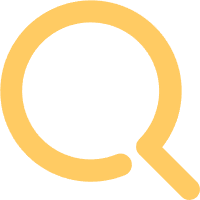

1. In 1599, Anthony van Dyck, a Flemish painter, was born in Antwerp.
2. In 1765, Britain enacted the Stamp Act to raise money from its American colonies.
3. In 1815, Napoleon became emperor for the second time.
4. In 1875, Zhang Zuolin was born.
5. In 1933, the German Reichstag adopted the Enabling Act, giving Adolf Hitler dictatorial powers.
6. In 1945, the Yalta Conference ended, where the leaders of the United States, the United Kingdom, and the Soviet Union met to discuss the post - war reorganization of Germany and Europe.
7. In 1948, the World Health Organization was established.
8. In 1962, Bob Dylan released his first album.
9. In 1963, the Beatles released their first album "Please, Please Me" in Britain.
10. In 1987, a barge carrying 3,200 tons of garbage left New York's Long Island on a six - month journey in search of a place to unload.
11. In 2003, U.S. President George W. Bush ordered air strikes on Baghdad, thus launching the Iraq War.
12. In 1600, the East India Company of England was granted a royal charter, giving it a monopoly on trade with the East Indies.
13. In 1621, the Pilgrims in Plymouth, Massachusetts, held the first Thanksgiving feast.
14. In 1727, the great scientist Isaac Newton died.
15. In 1775, the American Revolutionary War began with the battles of Lexington and Concord.
16. In 1804, the Lewis and Clark Expedition set out from St. Louis, Missouri, to explore the newly acquired Louisiana Territory.
17. In 1832, the Reform Act was passed in Britain, expanding the right to vote and redistributing parliamentary seats.
18. In 1848, the revolutions of 1848 broke out across Europe, with widespread uprisings and demands for political and social change.
19. In 1854, the Crimean War began, a conflict between Russia and an alliance of Britain, France, the Ottoman Empire, and Sardinia.
20. In 1864, the International Red Cross was founded by Henry Dunant.
21. In 1876, Alexander Graham Bell patented the telephone.
22. In 1882, the first electric power plant in the United States began operation in New York City.
23. In 1894, the Sino - Japanese War broke out, a conflict over control of Korea and influence in East Asia.
24. In 1904, the Russo - Japanese War began, a conflict over territorial expansion and influence in the Far East.
25. In 1916, the Battle of Verdun began, one of the longest and bloodiest battles of World War I.
26. In 1918, the influenza pandemic of 1918 - 1919, also known as the Spanish flu, began to spread worldwide, causing millions of deaths.
27. In 1922, the Union of Soviet Socialist Republics (USSR) was established.
28. In 1928, the Kellogg - Briand Pact was signed, an agreement to renounce war as an instrument of national policy.
29. In 1931, the Empire State Building was completed in New York City.
30. In 1935, the Nuremberg Laws were passed in Germany, stripping Jews of their civil rights.
31. In 1939, the "Phony War" period of World War II began, with little actual fighting on the Western Front.
32. In 1941, the Lend - Lease Act was passed in the United States, providing aid to the Allies in World War II.
33. In 1944, the D - Day landings took place in Normandy, France, marking the beginning of the end of the war in Europe.
34. In 1946, the United Nations General Assembly first met in New York City.
35. In 1947, the Truman Doctrine was announced, pledging U.S. support for countries fighting against communism.
36. In 1950, the Korean War began when North Korea invaded South Korea.
37. In 1953, the first successful test of a hydrogen bomb was conducted by the United States.
38. In 1956, the Suez Crisis took place, with Britain, France, and Israel invading Egypt over control of the Suez Canal.
39. In 1960, the first televised presidential debate in the United States took place between John F. Kennedy and Richard Nixon.
40. In 1964, the Civil Rights Act of 1964 was passed in the United States, prohibiting discrimination on the basis of race, color, religion, sex, or national origin.
41. In 1967, the Six - Day War took place in the Middle East, with Israel defeating Egypt, Jordan, and Syria.
42. In 1970, the first Earth Day was celebrated, raising awareness about environmental issues.
43. In 1973, the Paris Peace Accords were signed, ending the Vietnam War.
44. In 1975, the Vietnam War officially ended with the fall of Saigon.
45. In 1979, the Islamic Revolution took place in Iran, leading to the establishment of an Islamic republic.
46. In 1981, the first space shuttle flight, Columbia, took place.
47. In 1985, Mikhail Gorbachev became the leader of the Soviet Union and introduced policies of perestroika and glasnost.
48. In 1989, the Berlin Wall fell, symbolizing the end of the Cold War.
49. In 1991, the Persian Gulf War began, with a coalition of forces led by the United States liberating Kuwait from Iraqi occupation.
50. In 1993, the World Trade Center in New York City was bombed for the first time.